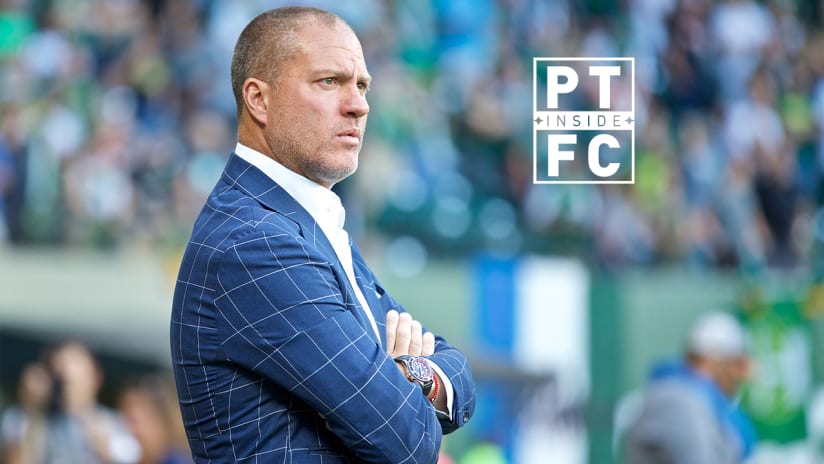PORTLAND, Ore. – In the soccer world, we’re used to the way losing teams talk about their losses, often doing so in a way that tries to mitigate their impacts. Some point to bad luck. Others point to poor officiating decisions. Still others point to numbers, like shots on goal or possession totals, to imply that their team wasn’t as bad as the final score.
“I thought in the first half we created a lot of chances and we had opportunities ...,” Portland Timbers head coach Giovanni Savarese said after his team’s game against Atlanta United on August 25. The Timbers lost that game at Providence Park, 2-0, but they way Savarese described his team’s performance wasn’t so different than how a number of losing coaches describe their teams’ performances. As much as coaches have to search out their teams’ problems, the strengths need to be noted, as well.
“We were playing very well,” he continued. “The only thing is that we needed to be a little bit calmer ... It was an even game, and it was just the moments that they took advantage of that made the difference in the match.”
Some coaches’ arguments are more convincing than others, but the broader points are ones on which most of us can agree. There’s a story the final score tells, and then there’s something deeper. Sometimes, those things are in agreement; others times, the picture is not so clear.
Where those pictures really matter is where teams have to come up with solutions. What happened in the past can neither be changed nor bring back lost points. The lessons you draw from them, however, can dramatically alter your future. Either you make the correct calls and right your wrongs, or in seeking new solutions, you only make your problems worse.
Coming off consecutive home losses, the Timbers are at a particularly interesting point of that process. That 2-0 loss to Atlanta, followed five days later by a 2-1 defeat to Seattle. One reading would see key losses to potential MLS Cup rivals as a sign: that the team has fallen out of step with its competition. In that world, major changes would be made. Another reading, though, would look at the commonalities between the two games and ask “how easy is it to fix those problems?” If the problems are straight forward, the Timbers might not be so far off; else, major changes here, too.
From the perspective of a fan, there is no wrong answer, here. If you want to tear it all down, you can point to some undeniable facts: that the team has lost two straight home games; and they’ve stalled in their quest to climb the conference. Those bottom lines alone are enough to build your rhetorical bonfire.
From the perspective of a coach, though, you have to look at goals like this, the first allowed against Atlanta United, and ask two questions (well, more than two questions, but let’s not list all of them, here):









